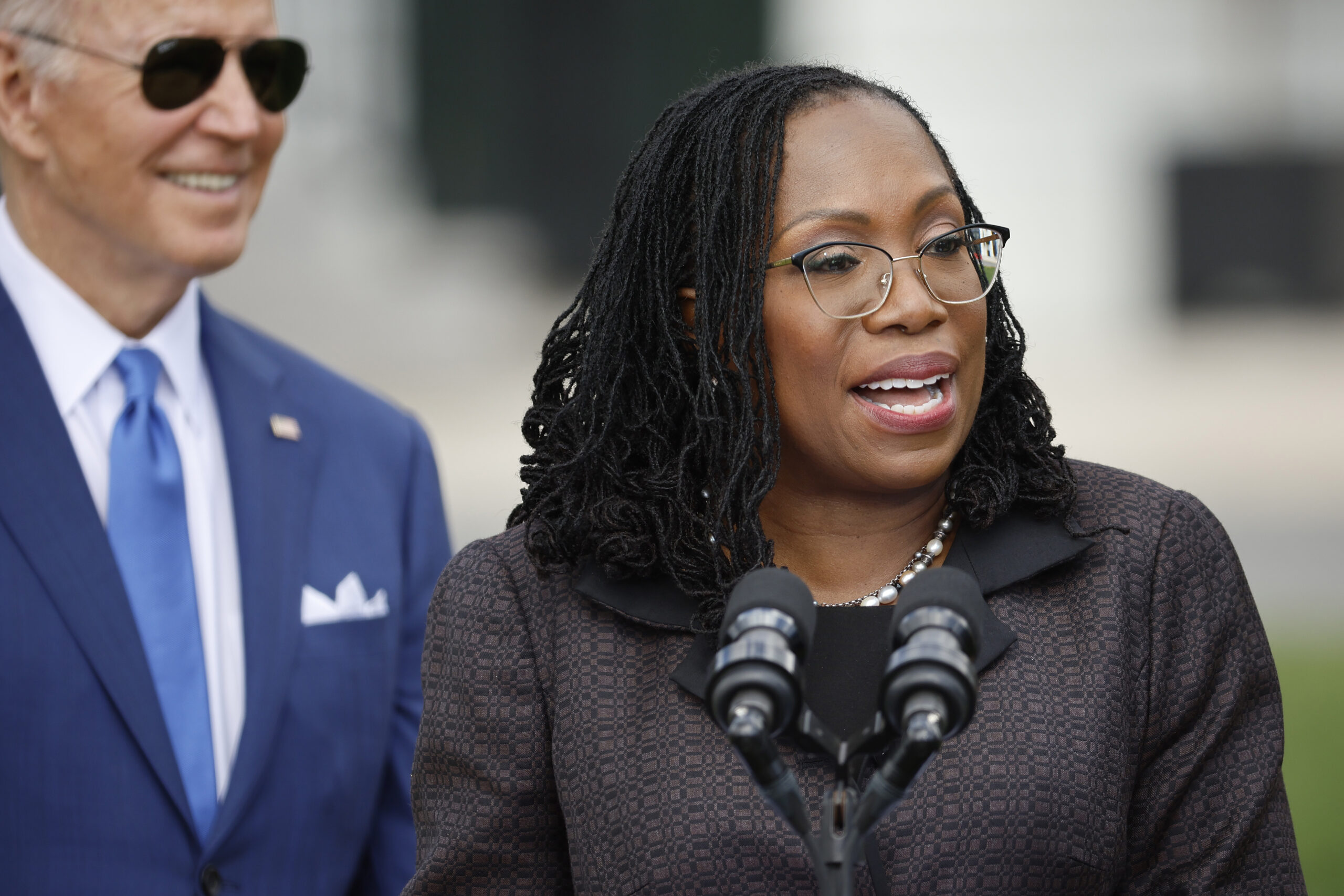A Black woman living in all of her glory and breaking barriers is something that we love to see. And Judge Ketanji Brown Jackson is doing just that!
On April 7, Jackson became the first Black woman to be confirmed to the United States Supreme Court. She is also the first public defender to serve as Justice. She will officially be sworn in this summer.
“In the 233-year history of the Supreme Court, never – never – has a Black woman held the title of ‘Justice,’” Senate Majority Leader Chuck Schumer stated. “This milestone should have happened generations ago – generations ago – but we are always trotting on a path towards a more perfect union. Nevertheless, America today is making a giant step towards making our union more perfect.”
If you’d like to learn more about this iconic woman, here are seven facts you should know!
Jackson is a graduate of Harvard college and Harvard Law School.
Jackson spent a total of seven years attending the institutes of Harvard college and Harvard Law School. During her time there as a student, Jackson navigated through many challenges of social injustices. One struggle included seeing Confederate flags flown from the windows of the institution.
While many students wanted to protest its presence, Jackson chose an opposite reaction. “As we’re doing this, we’re missing out on classes. As we’re fighting this injustice, we’re actually doing them a service because we’re going to be failing,” recalled close friend, Atoinette Coakley.
Jackson is related, by marriage, to House Speaker Paul Ryan.
Janna and I are incredibly happy for Ketanji and her entire family. Our politics may differ, but my praise for Ketanji’s intellect, for her character, and for her integrity, is unequivocal.
— Paul Ryan (@SpeakerRyan) February 25, 2022
Stay with us here – Jackson’s husband, Patrick G. Jackson is the twin brother of William Jackson, who is married to Dana Jackson – the sister of Janna Ryan, who is the wife of Paul Ryan.
Ryan even testified on Jackson’s behalf when she was nominated for the District Court in D.C. “Our politics may differ, but my praise for Kentaji’s intellect, for her character, and for her integrity, is unequivocal,” he stated via Twitter.
Jackson was featured on Obama’s Supreme Court shortlist back in 2016.
In March 2016, President Obama’s short list of potential Supreme Court nominees leaked to the public. Ketanji Brown Jackson was one of the figures named on that list.
At the time, Obama’s nod to Jackson surprised some because she had only held a seat in the U.S. District Court of D.C. for three years.
Jackson’s judicial philosophy sticks with the facts of the case at hand.
Ketanji Brown Jackson insists that she doesn’t have a one-sided judicial philosophy when dealing with cases. Instead her approach keeps a consistent methodology. She examines the facts of a case, how the law applies to those facts, and how she must then work within her judicial authority.
“I am clearing my mind of any preconceived notions about how the case might come out and setting aside any personal views,” she shared when speaking about her decision process.
Jackson has presided over many high profile cases, dealing with the crack-cocaine crisis to the Trump presidency era.
Between 2010-2014, Jackson served as the vice-chair on the United States Sentencing Commission. During this time she reduced thousands of crack-cocaine related sentences, which ultimately helped the justice system take necessary steps towards addressing criminal disparity in the country.
During the Trump presidency, Jackson also ruled that the former White House counsel was required to comply with Congress’s subpoena in the first impeachment hearings.
Jackson has often come under for lenient ruling in child pornography cases, but she actually feels very strongly on the issue.
Jackson actually feels that child pornography cases are the most “sickening and egregious,” but because she sticks to the facts of each case and boundaries of the law in her decision process, her rulings have only “followed Congress’s guidelines.”
“For every defendant that comes before me and who suggests as they often do that they’re just a looker, I tell them about the adults who are former child sex-abuse victims who tell me they will never have a normal adult relationship because of abuse,” she shared. “I tell them about the ones who say ‘I went into prostitution, I fell into drugs because I was trying to suppress the hurt that was done to me as an infant.”
Her full, African name means “lovely one.”
In Jackson’s opening statement, she shared that her African name, Ketanji Onyika, actually means “lovely one.”
“When I was born here in Washington, my parents were public school teachers and to express both pride in their heritage and hope for the future, they gave me an African name; ‘Ketanji Onyika’, which they were told means lovely one,” she shared.
“My parents taught me that, unlike many barriers that they had to face growing up, my path was clearer, such that if I worked hard and believed in myself, in America I could do anything or be anything I wanted to be.”
